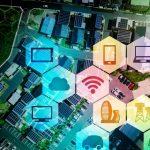In a significant move that has fueled the ongoing tension between the US and China, the Biden administration has taken steps to impose new restrictions on American investments in key Chinese technology sectors. Announced by the US Treasury Department, these measures have elicited a strong reaction from Beijing, emphasizing the escalating strain between the two largest economies. The focus on limiting investments in areas such as AI, quantum computing, and semiconductors underscores the strategic importance of these technologies.
Strategic Sectors Targeted
The newly proposed rules primarily target the restriction of US investments in advanced technological fields. These include artificial intelligence, quantum computing, and semiconductor sectors, which are deemed critical for national security. The objective is to hinder China’s advancement in technologies with potential military applications. By implementing these limits, the US aims to prevent China from gaining an upper hand in strategic technology sectors.
Beijing’s Strong Rebuke
In response, China’s Ministry of Commerce expressed severe concern and opposition towards the US move. According to the ministry, the US is politicizing and weaponizing trade and economic issues. They urged the United States to adhere to market economy rules and fair competition principles, advocating for the withdrawal of the proposed restrictions to foster better economic relations. Beijing’s reaction highlights the perceived threat to their technological and economic development.
Far-Reaching Consequences
The broader implications of these restrictions extend beyond US-China relations. They may expedite China’s efforts to achieve technological self-sufficiency and could impact global collaborations in scientific and technological research. Other countries might also reconsider their approach towards tech investments and exchanges with China, influenced by the US stance. The geopolitical landscape might experience further complexities due to the strained relations already marked by trade disputes and human rights issues.
A comparison of earlier information revealed that the US administration’s concerns about China’s advancements in AI and other technologies have been a recurring theme. Past actions included substantial tariffs and restricting the activities of Chinese tech firms within US borders, which aligns with the current strategic approach. These previous measures have consistently aimed to curb China’s technological capabilities while maintaining a competitive edge in critical sectors.
The emphasis on AI in these restrictions is particularly critical, given the dual-use nature of this technology and its applications in both civilian and military domains. The US administration’s focus on preventing AI advancements for military use in China underscores the ethical and security considerations involved. Such restrictions reflect the growing importance of AI in national security and global technological competitiveness, paralleling earlier measures under the Trump administration.
The challenge for the Biden administration remains balancing national security concerns with economic engagement. Effective measures to protect US interests without stifling innovation or causing significant economic disruptions will be crucial. Additionally, China’s assertion of its right to retaliate adds another layer of uncertainty. The manner in which Beijing responds could have broad implications for global trade and technological development, influencing international relations and economic policies worldwide.










